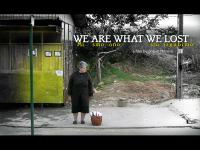- Naslovna
- B92
- Aleksandar Stojanović
- Aleksandar Vasović
- Aleksandra Mitrovic
- Ana Sofrenović
- Avram Goldmann
- Biljana Cincarević
- Biljana Srbljanović
- Božidar Đelić
- Bojana Maljević
- Branislav Kovačević Cole
- Čedomir Antić
- Đorđe Bobić
- Dejan Švajner
- Dejan Bizinger
- Dejan Restak
- Dejan Stanković
- Dule Nedeljković
- Everest 2007
- Gistro FM
- Goran Marković
- Goran Miletić
- Gordan Kičić
- Gorica Nešović
- Igor Brakus
- Ivana Konstantinović
- Ivan Marović
- Jasmina Tešanović
- Jelena Krajšić
- Jelena Milić
- Jelica Greganović
- Maja Kuruc
- Marčelo
- Marin Milosavljević
- Marko Vidojković
- Mića Marković
- Milan Lukić
- Milan M. Ćirković
- Milan Novković
- Milan Obradović
- Milica Đilas
- Miljenko Dereta
- Miloš Šaranović
- Mjehur
- Nebojša Milenković
- Nebojša Spaić
- Neven Anđelić
- Nikola Vitas
- Nune Popović
- Olga Medenica
- Olivera Vujnović
- Oto Oltvanji
- Queeria
- Rade Rakočević
- Radmila Hrnjak
- Radovan Nastić
- Ruža Ćirković
- Saša Radulović
- Sanja Perić
- Srđan Fuchs
- Srđan Kusovac
- Tamara Skrozza
- Tanja Jakobi
- Tatjana Momčilović
- Tena Štivičić
- Terorizam
- Veljko Popović
- Vesna Knežević Ćosić
- Vikipedija
- Vladan Aleksić
- World News
- Željka Buturović
- Željko Mirković
- Biografije
Postao sam slavan, a da to nisam ni znao!
Srđan Mitrović (8 Avgust, 2006 - 22:27)
 we are what we lostSvašta čovek može da otkrije o sebi i to sve zahvaljujući internetu. Na ovaj članak sam nabasao slučajno, tražeći neke nove ideje za dokumentarni film.
we are what we lostSvašta čovek može da otkrije o sebi i to sve zahvaljujući internetu. Na ovaj članak sam nabasao slučajno, tražeći neke nove ideje za dokumentarni film.
Nije da se hvalim, nego se mnogo hvalim. U ovoj zemlji je više publiciteta dobio film sa festivala u Herceg novom kome je publika zviždala i izlazila sa projekcije nego moj mali film koji je dobio specijalnu nagradu žirija na festivalu Corto in Bra. Jeste da moj film traje samo 5 minuta, ali mu je svaki minut zlatan.
http://www.wearewhatwelost.co.sr/
Da nije B92 ni to se ne bi znalo.
Evo teksta:
Friday, 28 July 2006
This year, the short-length movies and documentaries of Slow Food on Film have set sail for North America. The films selected by Slow Food and presented at the Corto in Brà Festival in April are taking a tour to over ten cities in the United States and Canada. In June the tour started out in Washington to then move on to Pittsburgh, followed by Cleveland, Iowa City, Chattanooga, Santa Fe, Los Angeles, Honolulu, Vancouver, Napa Valley, San Francisco, Minneapolis, Philadelphia and other cities. Thanks to the renewed partnership between the American Film Institute and Slow Food Washington, this is the first time the films are traveling to the other side of the Atlantic.
The event involves not only viewings in museums, universities and movie theaters, but also meetings and tastings. Scheduled to be held during the breaks between one film and the next are tastings of wine, cheese, meat, dessert, coffee and S.Pellegrino mineral water. The evenings will include presentations of the winners and the most significant works of the third edition of the Slow Food on Film festival, a unique event featuring short-length films (32 being presented this year) and documentaries (totaling 15) from all around the world, each revolving around food and time spent together at the dinner table.
Among the shorts proposed is "The Age of Reason" (France) by Myriam Aziza, which received the Golden Snail award from the jury headed by Polish composer Jan A.P. Kaczmarek (who won an Oscar for his soundtrack to "Finding Neverland"). Aziza's film tells the story of a 7-year-old Jewish girl Deborah, who was born in France and raised to have devout respect for the family's religious traditions. Yet the young girl finds herself faced with initial doubts regarding the precepts of her faith, her questions also touching on their religious restrictions on food. "The Age of Reason" was awarded for "the courageous yet delicate way in which the film raises fundamental issues of religion and food. For its assertion of the right of the individual to build new existential options and explore the personal applicability of rules through freedom of thought and critical appraisal."
Included in the films awarded in Brà and proposed to the North American audience are works selected in February by the Berlin Talent Campus (whose jury also included the curator of the German festival section), which was dedicated to the question of how to talk about food and hunger through images.
"We Are What We Lost" (Serbia) by Srdjan Mitrovic is a tribute to the relationship between food, memory, love and the pain of loss, in which the act of eating unites families, while "Kafe 469" (Iran) by Atefeh Khademolreza explores the thoughts of a young female terrorist sitting at a table in a Teheran café.
Also included, among German, American, Columbian, Cuban and Indian films (unfortunately there were no Italian ones awarded in Brà) is "Ohayo" or "Good Morning" by Shinya Okada (Japan), a curious tale of a young couple obsessed with food. Cooking is found to be a way to keep a marriage together, bringing the relationship to a more profound level.
Composed of Slow Food members, supporters and others who are simply curious about the event, American audiences are showing a great deal of interest in the initiative.





Najnoviji komentari
(1 godina 32 nedelje)
(1 godina 32 nedelje)
(1 godina 32 nedelje)
(1 godina 32 nedelje)
(1 godina 32 nedelje)
(1 godina 32 nedelje)
(1 godina 32 nedelje)
(1 godina 32 nedelje)
(1 godina 32 nedelje)
(1 godina 32 nedelje)